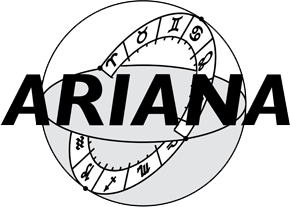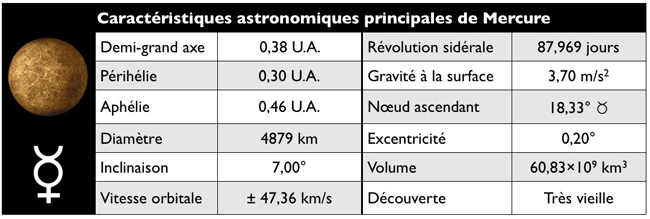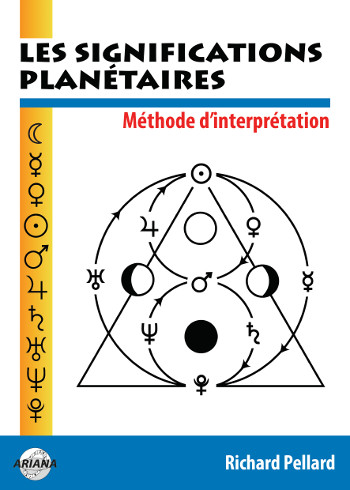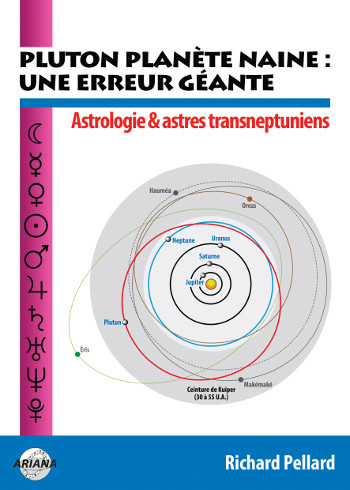Your Planets
Portraits of the Planets
Aspects between Planets
The planetary ages
The planetary families
Planets in Signs
The Planets in comics


The interpretation examples that we are suggesting are very far from being exhaustive: they only show and outline a general frame describing the issues of the planetary function. They should therefore not be taken literally. Each being brings indeed its own responses, more or less original, to the questions raised by a planetary function. There is no magic formula. Through using the R.E.T. and of the Theory of Ages and combining logic, observation and imagination, you will be able to develop a thousand other possible meanings, a thousand other variations on the same theme.
Generally: switching from the unique to the multiple: Multiplication, dissemination, maximum deployment of standards, codes, concepts, theories, models, goals, projects, images, principles, symbols or desacralization, crumbling, questioning, deep questioning of these. The enigma, the hidden meaning of the signs. Seizure of the universal in the particular. From here to far away: attraction to the elsewhere or the abstract. From the known to the unknown: openness to the uncertain, the unpredictable, the uncertain. The assumptions, and the prospective contained in the models. The multiple facets of a unique design.
Psychologically: To be in a state of relaxed expectation, of relaxed curiosity, to have a spontaneous spirit of discovery, of openness to the unknown. Grasp the abstract ideas hidden in words and images. Knowing how to open communication spaces in all directions. Demonstrate forward-looking imagination and fantasy, know how to have fun with nothing. Multiply points of view and free, risky, non-involving encounters. Seize the universal in the particular, know how to escape or distract from a dominant opinion. Keep a lightness of mind that prevents you from taking yourself seriously. To be a priori available for the novelty, the unpublished.
The positive characteristics of the mercurian function are the communicative sociability (trio Extensive representation of which Sun and Venus are also part) and critical mind (trio intensive transcendence which also include Saturn and Pluto).
The mercurian is an all-round sociable, eager for varied encounters, multiple contacts, always ready to engage in dialogue with others for the simple pleasure of communicating. From the outset, people interest him in their diversity and it is enough for him to detect the slightest sign favoring connection for his human curiosity to be awakened. Playful, relaxed, mobile, available, sometimes elusive in his dodges and his pirouettes, he wants to remain free to initiate the conversation and to resign when it suits him, not to feel tied to anything or anyone. Basically, if he likes to chat and communicate, he does it for fun, to see, without ever really getting involved in his speeches, avoiding taking himself seriously. Fundamentally open to others, having nothing to prove or demonstrate, he infinitely multiplies the facets of his own character and makes it his duty to be always changing, ready to welcome new points with joy, curiosity and interest. sight, to make new relationships.
The Mercurian is spontaneously open to the unknown and the unpredictable. Distrustful vis-à-vis definitive certainties, accepted theories, so-called sacred principles, habits of thought, he knows that the truth is multiple and that it is always necessary to seek it beyond appearances, by tracking down the slightest clues that can put him on his trail. For him any explanation that wants to be unique is necessarily unsatisfactory and he does not hesitate to criticize or make fun of those who claim to have understood everything. His immense and insatiable curiosity encourages him to multiply his centers of interest, his fields of discovery to prevent his thinking from freezing in the routine of the too well known, the too rehashed. He can on occasion be ironic, caustic, mocking: this is a way for him to maintain his distance from excessive seriousness. He knows how to keep a great distance from all its implications and preserve his freedom to change his mind, to modify his way of thinking at any time.
In negative, the mercurian deeply lacks experience, rootedness in lived experience, in the tangible realities of existence. He constructs a thousand fanciful and unrealistic projects, without taking into account the contingent factors present, without worrying about the opportunities and obstacles presented by concrete situations. Amused, inconsistent and talkative spectator of a universe that he considers as an entertaining theater, he is reluctant to confront himself with the outside world in a hand-to-hand fight, to take matters into his own hands, to struggle to pragmatically organize his existence. To the construction of the stable, the durable and the solid, he prefers his fables, his absurd and ineffective ideas.
In positive, the mercurian knows how to keep his mind intact from materialism, managerial inertia, aggressive struggles for survival, the clumsiness of common sense that he does not hesitate to ridicule. Whatever the facts, he intends to keep the possibility of imagining, without any restriction, all possibilities.
In negative, the mercurian is so totally open to the solicitations of the outside world, to everything that excites his curiosity, so dependent on his desires for encounters, he disperses there with such irrepressible ardor that he becomes incapable of imposing the demands of his inner self, to listen to his moods, to fundamentally escape any influence. If he does not immediately feel that others are available to him, ready to listen to him and respond to him, he becomes incapable of expressing what makes his individual singularity, his deep authenticity of being. Suggestive and easily influenced, he gets too much information from the outside world and not enough from himself.
In positive, the Mercurian possesses to the highest degree the art of not taking false prophets and inspired megalomaniacs seriously. Far from having the proud, refractory and delusional certainty that the truth can only spring from the depths of his being, he is open to any external contribution to enrich his knowledge.
In negative, the Mercurian lacks firm convictions, clear principles, the will to succeed. Velleitarian, uncertain, dispersed, unstable, he experiences the most extreme difficulty in making firm and definitive decisions, hesitates to commit himself, to get involved in a goal, a project, an ambition which requires systematic organization and unrelenting determination. fault. He dawdles, flutters, loses himself in useless conjectures or listens, until he becomes dazed, to the different sounds of the story where he would have to sort out, choose, impose or impose on himself an itinerary, a discipline, constraints, obligations. He sins by excess of casualness, inconsistency, lightness, without embarrassment.
In positive, the mercurian is reluctant to any form of regimentation, of unique thought. The devouring social ambitions to which some are ready to sacrifice everything, the need to be a model to follow and an example to imitate do not concern him in any way. He knows better than anyone that only fools don’t change their minds.
In negative, the mercurian is disinterested in the excess of beings in their carnal, living, palpable dimension, to the point of often appearing insensitive, indifferent, disembodied, incapable of emotion, affection or feeling. He tends to slip away or try to get out of it by pitiful pirouettes as soon as he is confronted with situations that are too saturated with affects. He finds it hard to let his heart pour out and deep down is not viscerally attached to anything or anyone: the others are for him only temporary and quasi-abstract interlocutors, and not beings of flesh and blood who enjoy, suffer, share desires and vibrant emotions. Nothing seems to touch this jack-of-all-trades…
In positive, the Mercurian knows how to wisely keep an ironic or playful distance from all emotional pathos. He prefers the airy games of the mind to the dampness of carnal desires. By not attaching himself to anyone, he leaves everyone his complete freedom. He knows better than others how to strip his human relationships of any libidinous impulse.
The reverse planetary function is the uranian function.
▶ Perspective Subject-Excitability : Switching from the high to the low energy level.
▶ Perspective Object-Signal : Switching from the simple to the complex.
▶ Perspective Relationship-Communication : Transcendence of Representation.
▶ Perspective Integration-Symbol : Switching from the Unique to the Multiple

▶ The mercurian function ‘tR’ (transcendence of Representation)
▶ The Mercurian: Psychological profile
▶ Mercurian stage (from 1 to 3 months old): the age of communication
▶ Sun-Mercury-Venus: extensive Representation
▶ Mercury-Saturn-Pluto: intensive transcendence
▶ Dès deux mois, le réseau du langage est en marche
▶ L’Esprit Mercure de C.G. Jung : une leçon de symbolisme

Les significations planétaires
par
620 pages. Illustrations en couleur.
La décision de ne traiter dans ce livre que des significations planétaires ne repose pas sur une sous-estimation du rôle des Signes du zodiaque et des Maisons. Le traditionnel trio Planètes-Zodiaque-Maisons est en effet l’expression d’une structure qui classe ces trois plans selon leur ordre de préséance et dans ce triptyque hiérarchisé, les Planètes occupent le premier rang.
La première partie de ce livre rassemble donc, sous une forme abondamment illustrée de schémas pédagogiques et tableaux explicatifs, une édition originale revue, augmentée et actualisée des textes consacrés aux significations planétaires telles qu’elles ont été définies par l’astrologie conditionaliste et une présentation détaillée des méthodes de hiérarchisation planétaire et d’interprétation accompagnées de nombreux exemples concrets illustrés par des Thèmes de célébrités.
La deuxième partie est consacrée, d’une part à une présentation critique des fondements traditionnels des significations planétaires, d’autre part à une présentation des rapports entre signaux et symboles, astrologie et psychologie. Enfin, la troisième partie présente brièvement les racines astrométriques des significations planétaires… et propose une voie de sortie de l’astrologie pour accéder à une plus vaste dimension noologique et spirituelle qui la prolonge et la contient.
Téléchargez-le dès maintenant dans notre boutique

Pluton planète naine : une erreur géante
par
117 pages. Illustrations en couleur.
Pluton ne fait plus partie des planètes majeures de notre système solaire : telle est la décision prise par une infime minorité d’astronomes lors de l’Assemblée Générale de l’Union Astronomique Internationale qui s’est tenue à Prague en août 2006. Elle est reléguée au rang de “planète naine”, au même titre que les nombreux astres découverts au-delà de son orbite.
Ce livre récapitule et analyse en détail le pourquoi et le comment de cette incroyable et irrationnelle décision contestée par de très nombreux astronomes de premier plan. Quelles sont les effets de cette “nanification” de Pluton sur son statut astrologique ? Faut-il remettre en question son influence et ses significations astro-psychologiques qui semblaient avérées depuis sa découverte en 1930 ? Les “plutoniens” ont-ils cessé d’exister depuis cette décision charlatanesque ? Ce livre pose également le problème des astres transplutoniens nouvellement découverts. Quel statut astrologique et quelles influences et significations précises leur accorder ?
Enfin, cet ouvrage propose une vision unitaire du système solaire qui démontre, chiffes et arguments rationnels à l’appui, que Pluton en est toujours un élément essentiel, ce qui est loin d’être le cas pour les autres astres au-delà de son orbite. Après avoir lu ce livre, vous saurez quoi répondre à ceux qui pensent avoir trouvé, avec l’exclusion de Pluton du cortège planétaire traditionnel, un nouvel argument contre l’astrologie !
Téléchargez-le dès maintenant dans notre boutique